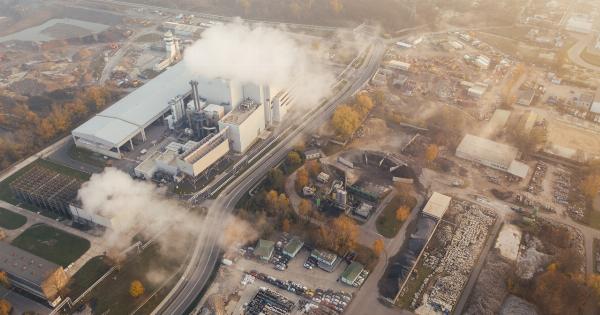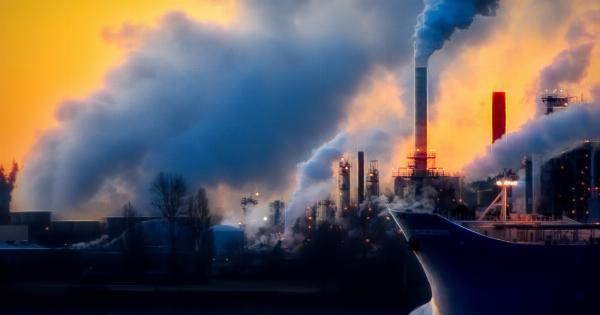City life can be exciting, but it comes with a set of unique hazards that residents should be aware of. In this article, we will explore some of the hazards of living in a city and what you can do to stay safe.
Noise Pollution
One of the most significant hazards of living in a city is noise pollution. With constant traffic, construction, and people, it can be difficult to find a quiet moment.
Continued exposure to loud noise can lead to hearing loss, sleep disturbances, and even heart disease. To reduce the impact of noise pollution, residents can use noise-canceling headphones or install soundproof windows in their homes.
If those are not options, simply taking breaks from the noise by finding quiet parks or other peaceful locations can help reduce stress and the negative impact of noise pollution.
Polluted Air
Another significant hazard of living in a city is air pollution. The air we breathe can carry pollutants from vehicle exhaust, factories, and other sources.
Continued exposure to polluted air can lead to respiratory problems, asthma, and other health issues. To protect themselves from air pollution, residents can use facemasks during outdoor activities or invest in home air purification systems.
Additionally, residents should be aware of high pollution days and avoid spending significant time outside during those times.
Traffic Hazards
City streets can be a dangerous place. With all the cars, bicycles, and pedestrians, accidents are frequent. To stay safe, residents should always follow traffic rules and watch for sudden changes in traffic flow.
Utilizing designated bike lanes and crosswalks is also critical. Additionally, during poor weather conditions, residents should avoid driving or walking in hazardous areas, as visibility and traction may be severely limited.
Crime
Unfortunately, crime is a reality of city life. From petty theft to violent crimes, residents should be vigilant and aware of their surroundings.
Taking steps such as locking doors and windows and using a home security system can help deter potential criminals. Additionally, avoiding sketchy neighborhoods, traveling in groups when possible, and reporting any suspicious activity to the police can significantly reduce the risk of becoming a victim of crime.
Natural Disasters
While natural disasters can happen anywhere, cities can be particularly vulnerable to certain types of disasters. For example, earthquakes and hurricanes can cause significant damage in densely populated areas.
To prepare for natural disasters, residents should familiarize themselves with emergency procedures and have essential supplies, such as food and water, on hand. It is also important to have a plan for evacuation in case it becomes necessary.
Poor Sanitation
With hundreds of thousands of people living in close proximity, maintaining good sanitation can be a challenge in cities. Trash, sewage, and standing water can create breeding grounds for bacteria and viruses.
Residents can reduce their risk of infection by avoiding contact with standing water or garbage and washing their hands frequently. Additionally, staying up to date on vaccinations and practicing good hygiene habits can help reduce the spread of disease.
Stress
City life can be hectic, and the constant noise, traffic, and crowds can lead to significant stress. Chronic stress can lead to a variety of health problems, including high blood pressure and obesity.
To reduce stress levels, residents can practice meditation, yoga, or other relaxation techniques. Additionally, taking time to enjoy nature, adopting a healthy lifestyle, and managing workloads can help mitigate the effects of stress.
Overcrowding
Living in a city means being surrounded by people. For some, this can be overwhelming and can lead to anxiety and claustrophobia. Additionally, overcrowding can make it difficult to find affordable housing or to access healthcare facilities.
To cope with overcrowding, residents can take steps such as seeking out quiet areas or parks to enjoy nature, socializing with a small group of friends, or pursuing hobbies that allow them to escape the city occasionally.
Water Scarcity
With so many people living in cities, access to clean water can be a challenge. Water scarcity can lead to hygiene problems and increase the risk of disease, particularly during times of drought.
To conserve water, residents can take simple steps like fixing leaks in plumbing and investing in low-flow showerheads and toilets. Additionally, residents should conserve water by turning off the tap when brushing their teeth or shaving.
Conclusion
While city life can be exciting, it also comes with unique hazards. By being aware of potential health and safety risks and taking steps to reduce exposure, residents can stay safe and healthy while enjoying all that the city has to offer.


























